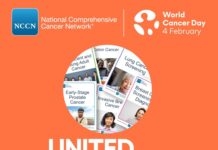BRONX, N.Y., Sept. 22, 2020 /PRNewswire-HISPANIC PR WIRE/ — The widespread use of antiretroviral therapy to suppress the HIV virus has helped tens of millions of people with HIV live healthier, longer lives—but an unfortunate consequence of people living longer with HIV is an increased risk of cancer. For 25 years, the AIDS Malignancy Consortium (AMC) has led national and international efforts to prevent and treat of HIV-related cancers. Now, Montefiore Health System and Albert Einstein College of Medicine have received a five-year, $111 million grant from the National Cancer Institute (NCI) to lead this research consortium.

“People living with HIV shoulder an enormous burden of cancer,” said Joseph Sparano, M.D., associate chair for clinical research in the department of oncology at Montefiore, associate director for clinical research at the NCI-designated Albert Einstein Cancer Center, and principal investigator (PI) on the grant. “AMC is the only organization worldwide solely dedicated to the study, treatment, and prevention of cancer in this group of people. Montefiore and Einstein are perfectly positioned to lead this organization and steer research advances.”
Engaging the Community at Risk
Approximately 38 million people are infected with HIV, including 1.2 million in the U.S. People living with HIV have an increased risk of developing cancer compared with the general population and are more likely to die of cancer, interrupting otherwise healthy lives. This is due to a variety of causes, including long-term inflammation and an overtaxed immune system. In addition, HIV infections are concentrated in marginalized communities in the U.S., primarily among people of color, who make up approximately 70% of new infections.
To address this need, Montefiore developed an HIV Oncology Service, directed by Luca Paoluzzi, M.D., a medical oncologist at Montefiore, assistant professor of medicine at Einstein, and the AMC PI at Montefiore and Einstein. The newly established service brings together Montefiore and Einstein’s experience in patient care and research.
Partnership with NIH AIDS Research Center
Collaborating with Harris Goldstein, M.D., associate dean for scientific resources, director of the NIH-funded Einstein-Rockefeller-CUNY Center for AIDS Research (CFAR), and professor of pediatrics and of microbiology & immunology at Einstein, Dr. Sparano has established a scientific working group focused on cancer and HIV that will guide the direction of future collaborative research at the CFAR and AMC. The group will be co-chaired by Dr. Sparano and Howard Strickler, M.D., professor and chief of epidemiology in the department of epidemiology & population health at Einstein and Montefiore. It will identify areas of need, evaluate emerging research, and design new clinical trials that will be rolled out at dozens of locations at Montefiore and around the world.
AMC’s International Network
The AMC oversees a network of 42 clinical trial sites in the United States, Africa, and Latin America, as well as translational scientists who support its clinical trials. It also runs a career enhancement program to ensure that the next generation of leaders receive resources and support. In addition, the AMC actively engages with people living with HIV and cancer throughout the world so the consortium can identify and address the needs of this community with their input.
Established in 1995, the AMC has initiated more than 100 clinical trials, surveys, and laboratory studies involving approximately 8,700 individuals. Results from these investigations have strengthened international practice guidelines, including treatment for Kaposi sarcoma and lymphoma; advanced prevention and management of human papillomavirus (HPV)-associated cancers; and furthered the use of precision therapeutics and immunotherapy for people living with HIV who receive antiretroviral therapy.
“During this next phase, we will build on these successes, developing and leading additional clinical trials designed to address the most critical needs of people with HIV and cancer, precancerous disease, and individuals at high risk for cancer—most importantly, completing the ANCHOR trial,” said Dr. Sparano.
The ANCHOR Study
The ANCHOR Study, which stands for Anal Cancer HSIL Outcomes Research, focuses on the prevention and treatment of anal cancer, which is caused by the human papilloma virus (HPV). The virus causes changes in the skin near the anus, called “high grade squamous intraepithelial lesions,” or HSIL. Most HSIL go away on their own, but some become cancer and spread to other parts of the body.
“Regular screening for anal cancer can catch the disease when it is highly treatable, much like the use of pap smears to identify abnormal tissue before it develops into cervical cancer, which is also caused by HPV,” said Rebecca Levine, M.D., assistant professor of surgery at Einstein, a surgical oncologist at Montefiore, and the ANCHOR principal investigator at Einstein and Montefiore. “The aim of the study is to establish best practices for the prevention and treatment of anal cancer. We expect the results of this study will have an enormous impact on clinical care,” added Dr. Levine.
Einstein-Montefiore HIV/AIDS Research and Care
Since HIV emerged in the 1980s, Einstein and Montefiore have been leaders in HIV/AIDS research and clinical care. Its researchers were the first to identify pediatric AIDS as a different disease from adult AIDS and to find effective treatments. Montefiore and Einstein also established one of the first five NIH-supported AIDS Treatment and Evaluation Units and led early studies of HIV among people with substance use disorders. Faculty members are principal investigators on significant NIH-funded initiatives, including the Women’s Interagency HIV Study/Multicenter AIDS Cohort Study and the Central Africa International Epidemiologic Databases to Evaluate AIDS study.
Montefiore’s clinical care programs include the adult AIDS Center, one of the largest HIV treatment programs in the U.S. The AIDS Center’s outpatient Center for Positive Living/Infectious Diseases Clinic offers state-of-the-art care for adults living with HIV/AIDS. Its Oval Center offers sexual health services, testing, care, and counseling along with PrEP and PEP to reduce the risk of HIV infection, and HIV care to LGBTQ+ individuals aged 16 and up. Montefiore’s Adolescent AIDS Program serves 13- to 24-year-olds with comprehensive offerings including mental healthcare and support services, and primary care for LGBTQ+ youth
The grant, titled “AIDS Malignancy Consortium” was funded by the National Cancer Institute, part of the National Institutes of Health (2UM1CA121947).
About Montefiore Health System
Montefiore Health System is one of New York’s premier academic health systems and is a recognized leader in providing exceptional quality and personalized, accountable care to approximately three million people in communities across the Bronx, Westchester and the Hudson Valley. It is comprised of 11 hospitals, including the Children’s Hospital at Montefiore, Burke Rehabilitation Hospital and more than 200 outpatient ambulatory care sites. The advanced clinical and translational research at its medical school, Albert Einstein College of Medicine, directly informs patient care and improves outcomes. From the Montefiore-Einstein Centers of Excellence in cancer, cardiology and vascular care, pediatrics, and transplantation, to its preeminent school-based health program, Montefiore is a fully integrated healthcare delivery system providing coordinated, comprehensive care to patients and their families. For more information please visit www.montefiore.org. Follow us on Twitter and view us on Facebook and YouTube.
About Albert Einstein College of Medicine
Albert Einstein College of Medicine is one of the nation’s premier centers for research, medical education and clinical investigation. During the 2019-20 academic year, Einstein is home to 724 M.D. students, 158 Ph.D. students, 106 students in the combined M.D./Ph.D. program, and 265 postdoctoral research fellows. The College of Medicine has more than 1,800 full-time faculty members located on the main campus and at its clinical affiliates. In 2019, Einstein received more than $178 million in awards from the National Institutes of Health (NIH). This includes the funding of major research centers at Einstein in aging, intellectual development disorders, diabetes, cancer, clinical and translational research, liver disease, and AIDS. Other areas where the College of Medicine is concentrating its efforts include developmental brain research, neuroscience, cardiac disease, and initiatives to reduce and eliminate ethnic and racial health disparities. Its partnership with Montefiore, the University Hospital and academic medical center for Einstein, advances clinical and translational research to accelerate the pace at which new discoveries become the treatments and therapies that benefit patients. Einstein runs one of the largest residency and fellowship training programs in the medical and dental professions in the United States through Montefiore and an affiliation network involving hospitals and medical centers in the Bronx, Brooklyn and on Long Island. For more information, please visit www.einstein.yu.edu, read our blog, follow us on Twitter, like us on Facebook, and view us on YouTube.
Logo – https://mma.prnewswire.com/media/675671/Montefiore_Logo.jpg
SOURCE Montefiore Health System; Albert Einstein College of Medicine







